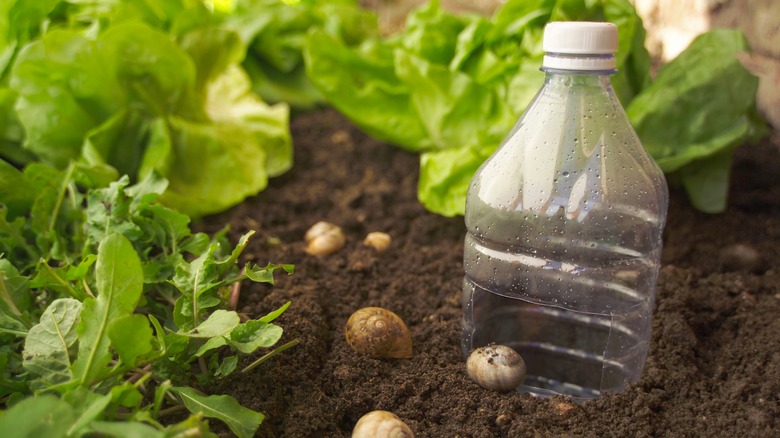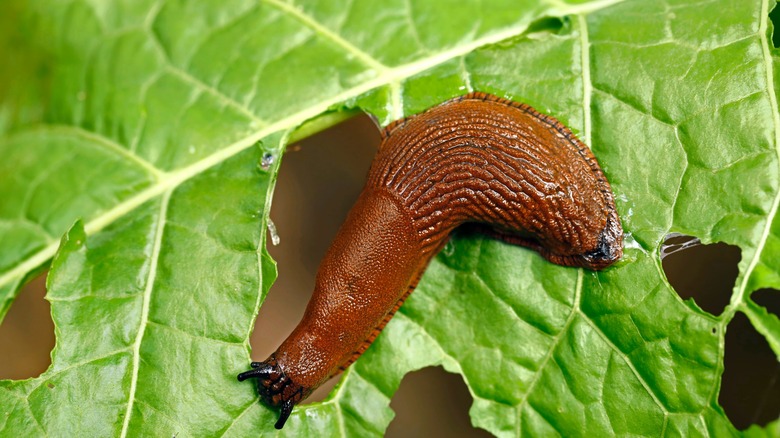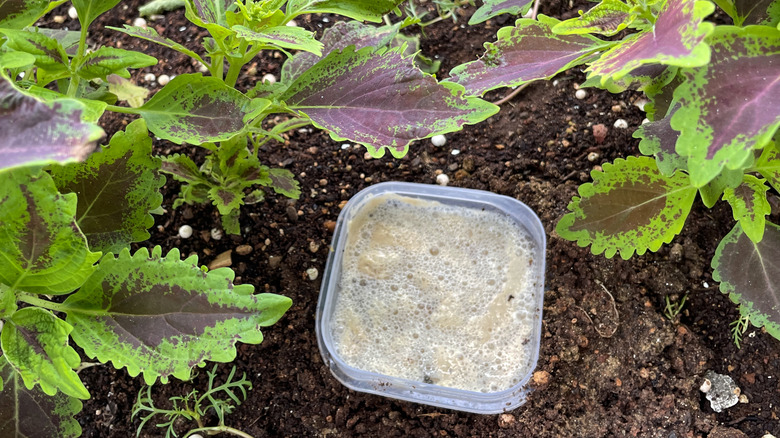Does Beer Actually Work To Keep Your Garden Slug-Free?
Slugs are persistent garden pests. If gardeners aren't proactive, or you could say if they're 'sluggish', in protecting their plants from these voracious invaders there's a possibility they'll ruin your garden. Among the various methods to control slugs, beer traps have gained popularity due to their simplicity and perceived effectiveness. The basic idea is that slugs are attracted to the smell of beer. By placing a small container filled with beer in the garden, slugs are lured to the liquid, where they fall in and drown.
Setting up a beer trap requires some precision to maximize its effectiveness. The container should be partially buried with the rim about an inch above the soil to prevent other insects from falling in. This height specifically avoids inadvertently killing ground beetles, which are natural predators of slugs.
While beer traps can reduce the number of slugs, they are not foolproof. Many slugs will drink the beer and crawl away rather than fall into the container and drown. Moreover, because beer traps attract slugs from only a short distance, multiple traps are necessary to cover larger garden areas effectively. Spacing them about three feet apart is recommended for optimal results. But they are an adequate cheap solution that you can enact immediately when you realize you have a slug problem. Let's dig into why they work and how to build the best trap.
When and why slugs are coming into your garden
Slugs are notorious for their appetite, particularly favoring certain types of plants. They are especially drawn to leafy vegetables such as lettuce, spinach, and cabbage, as well as tender seedlings. Other plants that frequently fall victim to slug infestations include Hostas, a variety of flowers like marigolds and dahlias, and fruit-bearing plants such as strawberries. These plants provide the moisture and softness that slugs prefer, making them prime targets in any garden.
According to Gardening World, slugs are most active and present in gardens during spring when plants are at their most luscious, meaning that there's plenty of food for them to eat. Slugs thrive in moist environments, as they are prone to dehydration due to their soft, unprotected bodies. This makes them highly sensitive to dry and hot conditions, which is why their activity diminishes significantly during the summer's peak heat. Rainy weather and dew-covered plants create ideal conditions for slugs, providing the necessary moisture for them to move and feed without risking dehydration. For these reasons, slugs are also most active during the late evening and night as the cooler weather poses less risk of drying up their moist exterior. Fall is another peak period for slug activity as the weather cools down and rains return, creating perfect conditions for these pests to feed before winter.
Building the perfect beer trap
Contrary to popular belief, it's not the alcohol content in beer that attracts slugs but rather the yeast. Slugs are particularly attracted to beer due to the fermentation byproducts it contains. These compounds emit a strong, appealing scent that lures slugs, drawing them to the source. When slugs approach a beer trap, they are enticed by the smell, crawl into the container, and often drown in the liquid.
There are several types of beer traps that gardeners can use to control slug populations, such as the aforementioned shallow container, such as a tuna tin or a plastic cup, filled with beer and placed in the garden. To build a more sophisticated 'slug pub' you could make a covered beer trap. This design involves a container with a lid that has entry holes around the sides. This setup prevents rainwater from diluting the beer and helps keep the trap effective for longer periods. The covered trap also reduces the risk of accidentally catching non-target insects.
Other slug repellents include using WD-40 to lubricate the stems of plants or you can use garlic to actually kill slugs. Alternatively, you could turn your garden into a ground beetle haven to ensure there's a natural predator keeping your slug population under control.


